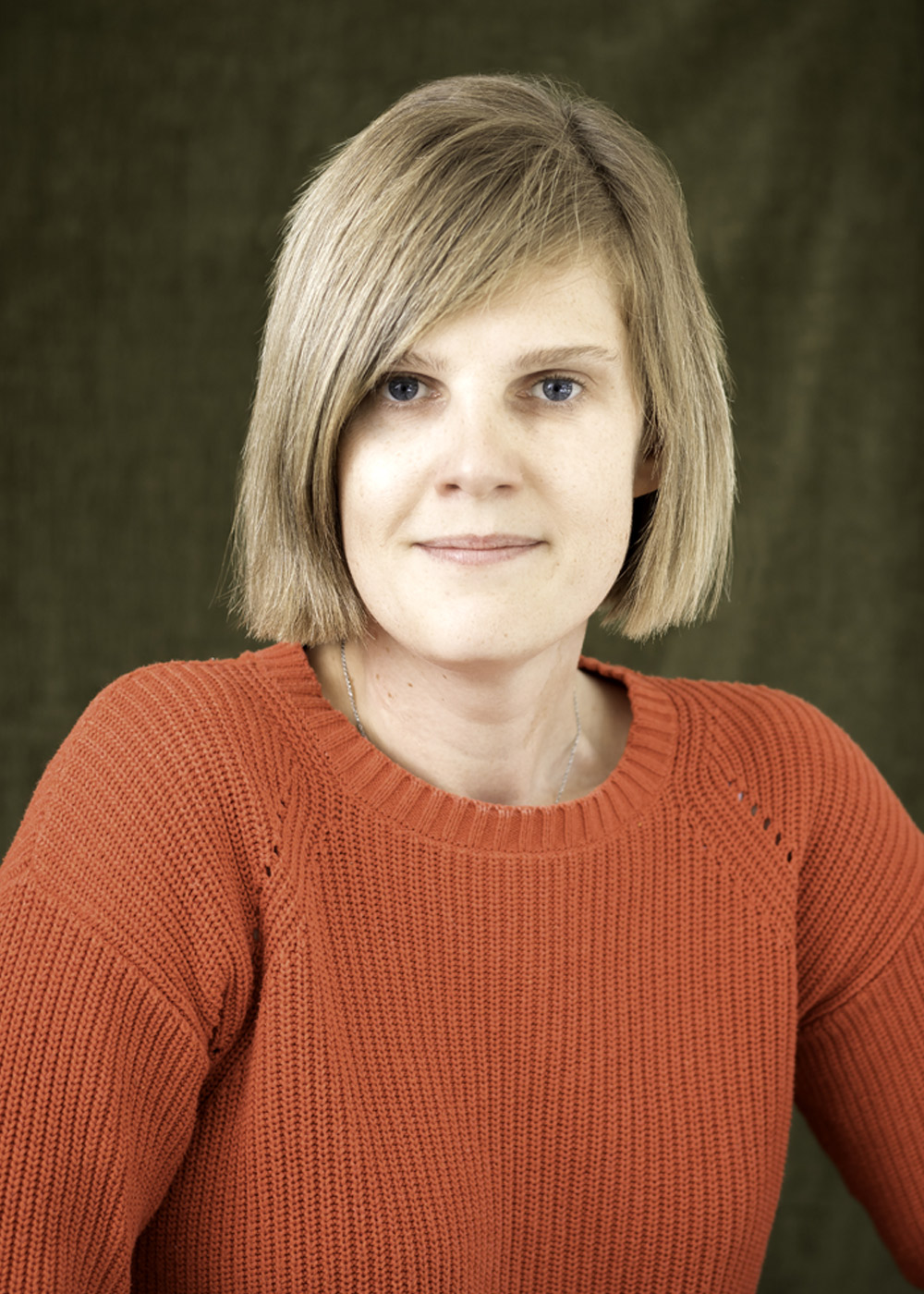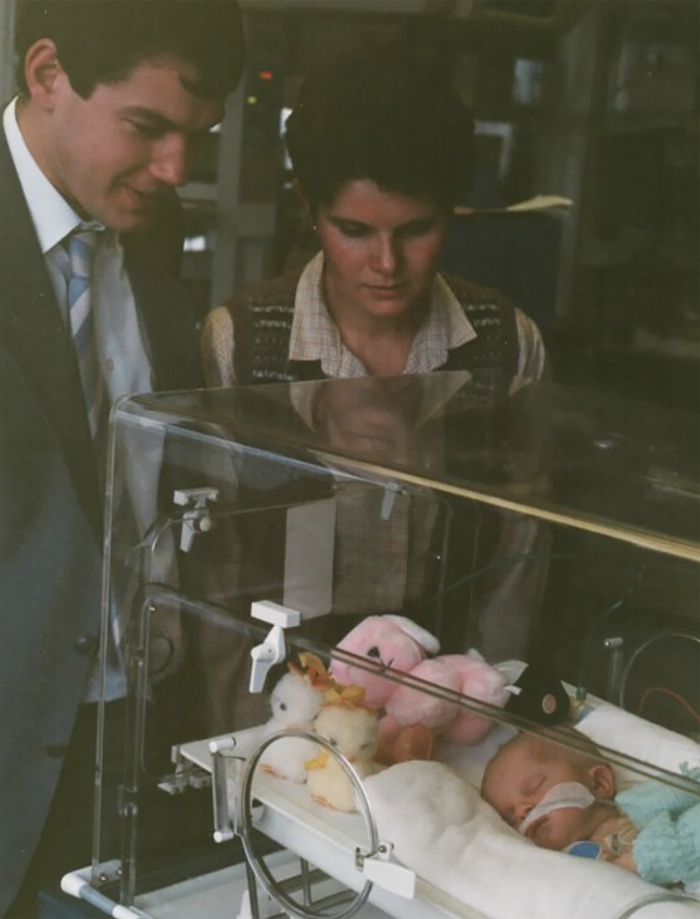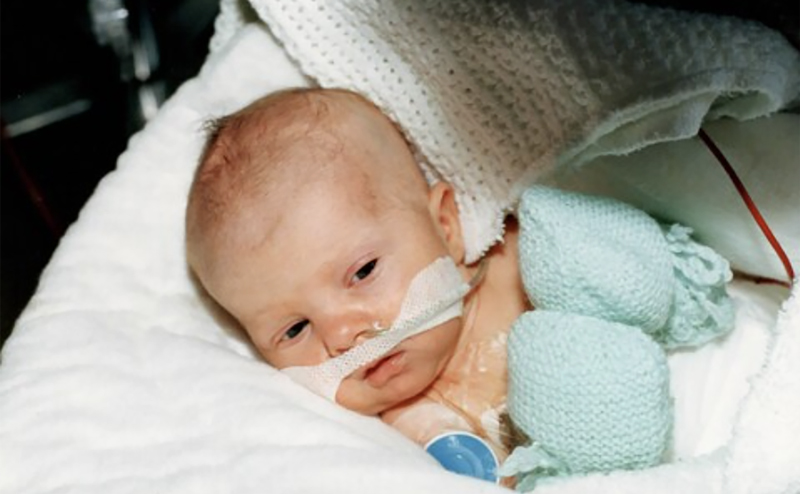

A Boy Named Sophie
A woman’s search for answers after a medical betrayal.
By Jessamy Calkin
Photos courtesy of Sophie Ottaway
When Sophie Ottaway was born a boy in 1986, a rare birth defect meant that doctors pushed for immediate surgery that would alter her gender from male to female, warning her mother and father that the procedure must remain a secret — even from Sophie herself. It was only by chance that, at the age of 22, she found out the truth, sparking fury at her parents and doctors, and leading to years of denial, excessive drinking and drug use. Now 37, she talks openly about reconciling with her past — and her family — and what the future holds.
When Sophie Ottaway was a teenager she often had to go to the doctor. She knew that she had been born with medical complications, that her ovaries were damaged and had been removed, and from the age of 11 she had to take hormones. But when she was 22, she went for a routine appointment for tonsillitis. Sophie hated medical appointments, so her mother always liked to accompany her on visits to the doctor. On this occasion her regular GP was on holiday and she saw a locum.
The locum’s computer screen was directly in Sophie’s eyeline and on it were her medical notes. “Sophie Ottaway,” it began. “46XY chromosome. Prolapsed bowels through abdominal defect— bladder reconstruction, testes and phallus removed, vaginal construction…”
She had been born a boy. “It was on the screen in bold font,” says Sophie, who is the type of person who notices things like font detail. “I could read it from where I was sitting. And I looked at Mum and saw that she had clocked it, and then she clocked that I’d seen it. I never wanted to cause a scene in those days so I didn’t say anything, and Mum didn’t say anything — and we finished the consultation, I got my antibiotics and left.
“But then I hit the roof.
“Mum had a white Nissan Micra — I don’t know why I remember that — and I got in the car and I just fucking exploded. I remember coming home, going to the fridge and cracking open a bottle of beer, going into my room and slamming the door and Mum coming up and trying to talk to me and I was just shouting at her: ‘I don’t want to talk to you! I don’t want to know! Fuck off!’” Sophie didn’t tell anyone what she had discovered for another 15 years.
Sophie is 37 now. I am sitting with her and her mum and dad in the conservatory of her parents’ neat and spotless home in Beverley, a small Yorkshire market town full of lovely run-down architecture and hideous new buildings. Sophie is lively, warm, passionate and funny; clearly reconciled with and very close to her parents, Karen and John, who seem devoted to her.
Sophie is keen to tell her story. “It’s been a very difficult journey for us. There’s been times when we’ve hated the world and hated each other, but we love each other now.”
Sophie was born with a rare condition called cloacal bladder exstrophy — although her parents were not even told the name of it until 2019. She was a much wanted child and her mother had a “textbook pregnancy”, including a routine scan at 16 weeks, which reassured her that all was normal. At the time John was a computer analyst and Karen a personal assistant to the director of a food-production company.
Sophie was born at 5.45am on 20 March 1986.
She weighed just over 2.5kg. Karen was exhausted, having not slept for 48 hours. “They took the baby away immediately,” says Karen, “and there were no happy smiley faces — the midwife was in tears. John came over looking quite distressed. He said, ‘We’ve had a boy but he’s got a lot of problems.’”
John, sitting in the corner of the conservatory, starts crying quietly. “Oh please don’t get upset,” says Karen. And to me she says, “He’s had a few strokes and he gets very emotional.”
Karen and the baby were moved to Saint Mary’s Hospital in Manchester in an ambulance and Sophie was placed in the neonatal surgery ward, but they didn’t see her.
Cloacal bladder exstrophy is a condition that affects about one in 200,000–400,000 live births, and develops while the baby is in the womb. “Her bladder was in two halves and on the outside of her body, along with part of her intestines and there was a very small split penis.”
Karen and John were told that the condition would require many hospitalisations and operations; it would cause infections and other problems, and the child would miss a lot of schooling, and have erectile dysfunction when he got older. “There would be a lot of psychological problems too,” says Karen. “They were painting a really black picture. Bear in mind that we didn’t have the internet in 1986, you couldn’t just Google it, and they didn’t even tell us the name of the condition.
“We were in the room with these two surgeons, who seemed to know what they were talking about; they said that if they changed the child’s gender to female, the outcome would be better. We’d never heard of anything like that, but they said they’d done it before. There would be less infections, less hospitalisations; it would be a bit rocky at first but she would have a more normal childhood. After the initial operations she’d have a healthy chance of a great future.”

Newborn Sophie went through more than 10 hours of surgery at two days old.

They were told to think about it but not to take too long — the birth hadn’t been registered and once the birth certificate was issued, the gender couldn’t be changed. They wanted to operate the following day.
This wasn’t made clear to the Ottaways, but it appeared that the doctors were subscribing to a theory that gender was learned, not innate. That if the baby was brought up as a girl, who would know the difference? She would not be able to have children, but could take hormones to ensure she had female physical characteristics.
“Nothing was mentioned to us about nature or nurture, but the doctors said you were a really pretty baby and as long as we didn’t tell anyone, then nobody would ever have any cause to question her gender,” says Karen. “They indicated that she would just grow up thinking she was a girl.
“John and I didn’t even need to discuss it. We said, in the light of what you’ve told us, it will be better for the child to have that operation.”
Karen has always kept a diary every day. So although the hospital doesn’t have any records of Sophie’s birth and the early operations (the family were told that records are destroyed after 20 years), she does. Two days after birth, their baby had 10 and a half hours of surgery.
“We were told they’d ring after the surgery,” says Karen. “We were waiting and waiting, and I said to John, ‘When that phone rings, I can’t answer it. She may be dead.’”
This story appeared in the October 2023 issue of North & South.


